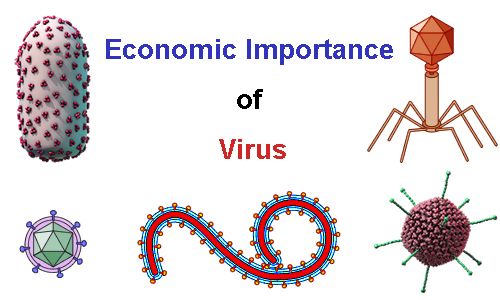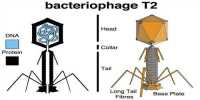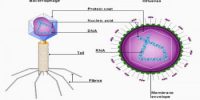The word ‘virus’ is from the Latin word meaning “poisonous fluid” or “noxious liquids”. A virus is a small infectious agent that can reproduce only inside the living cells of animals and plants to microorganisms, including bacteria and archaea.
Viruses hold a taxonomic position and they are placed in their own kingdom. In fact, viruses should not be thought organisms, because they are not free-living; i.e., they cannot reproduce and bear on metabolic processes without a host cell.
All viruses contain nucleic acid — either DNA (deoxyribonucleic acid) or RNA (ribonucleic acid), but both do not remain together and protein.
Economic Importance of Virus
The viruses have both Useful roles and Harmful roles
Useful roles
- In preparing antidotes/vaccine: Pox, mumps, polio, jaundice etc diseases can be controlled by penetrating using or dead virus in the human body as vaccines.
- In controlling harmful animals and insects: Some animals and insects which are harmful to humans can be controlled by some special virus.
- Control of disease: T2 bacteriophage virus saves humans from dysentery by spoiling some harmful bacteria, like, e-coli. In Virotherapy, viruses use as vectors to treat several diseases, as they can explicitly target cells and DNA. It intimates hopeful use in the treatment of cancer and in gene therapy.
- In the laboratory: Virus is used in the lab, as the simplest living model. In the research of genetics, the virus is used mostly. It is an important subject in genetic engineering.
- In the evidence of evolution: Virus plays a vital role to acquire knowledge about the trend of evolution and the process of formation of living organisms because the virus contains both living and non-Living characteristics.
- In nanotechnology, viruses can be considered as organic nanoparticles. Because of their size, shape, and structures have been used as a template for organizing materials on the nanoscale.
- In Seawater: A spoon of seawater contains about a million viruses, making them the most plenteous natural substance in aquatic ecosystems. They are useful in the disposal of saltwater and freshwater ecosystems. Viruses increase the number of Photosynthesis in Oceans and are effective for reducing the amount of carbon dioxide in the atmosphere by approximate 3 gigatonnes of carbon per year.
Harmful roles
- Different diseases like common Cold, Influenza, Mumps, Pox, Polio, Yellow fever, Harpish, Aids etc. are caused by the attack of the virus.
- Human viruses, especially those that caused to deaths, can have larger negative economic effects. For example, Africa’s Ebola virus occurred in economic losses of over $1.6 billion.
- The virus destroys plenty of bacteria which useful for humans.
- Viruses can cause a destructive influence on human societies. They can be weaponized for biological warfare.















